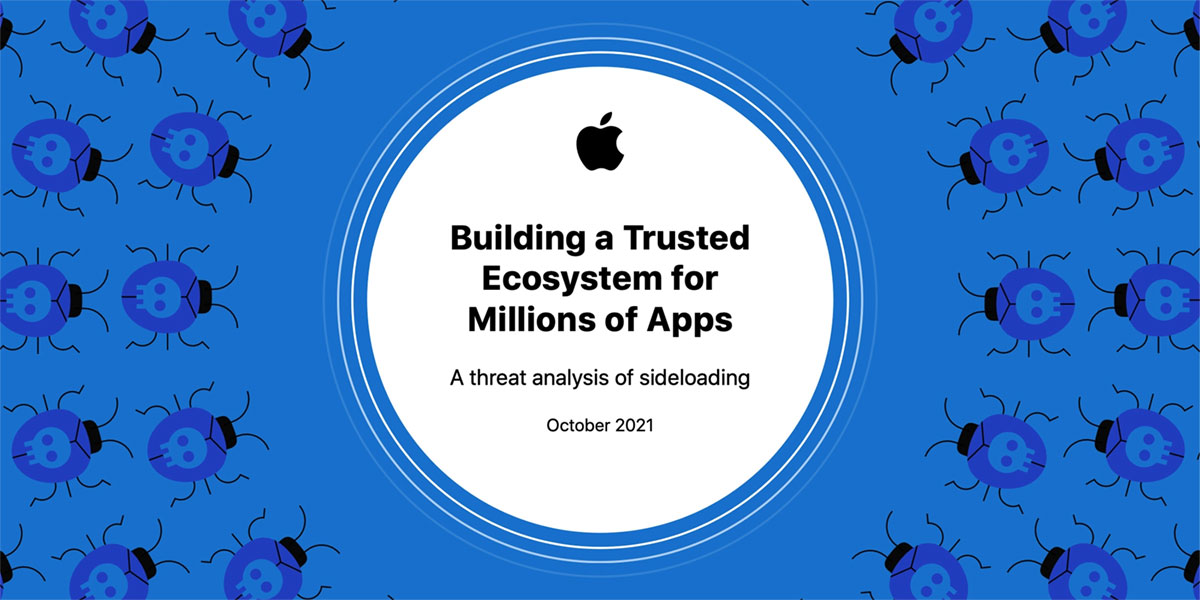Apple is under continued pressure to allow users to sideload apps onto iPhones and iPads and the company is out with a new paper today that focuses on what could go wrong if sideloading was brought to iOS and iPadOS. Predictably, the report says that the move would have dire consequences.
According to Apple, sideloading would “cripple” the privacy offered by the App Store and, that being something users rely on, such a move would not be beneficial.

iPhone is a highly personal device where users store some of their most sensitive and personal information. This means that maintaining security and privacy on the iOS ecosystem is of critical importance to users. However, some are demanding that Apple support the distribution of apps outside of the App Store, through direct downloads or third-party app stores, a process also referred to as “sideloading.” Supporting sideloading through direct downloads and third-party app stores would cripple the privacy and security protections that have made iPhone so secure, and expose users to serious security risks.
Apple also points to the security and privacy situation Android finds itself in. Android has always allowed users to sideload apps and games, but Apple says that comes with a price. In fact, the security paper claims that Android has 15 to 47 times more malware infections than iPhones do.
Whether governments in the US and Europe, among others, eventually force Apple to allow some sort of sideloading mechanism or not remains to be seen. But one thing is obvious – Apple doesn’t want to go that route. And it claims it’s about more than just the possibility of losing the 15 – 30% it now takes from app purchases and in-app sales.
You can read the full paper right now and make your own mind up as to whether Apple’s intentions are pure, or not.
You may also like to check out:
- Download Windows 11 Pro ISO File Without Product Key From Microsoft
- Force Download Windows 11 Free Upgrade Right Now, Here’s How [Tutorial]
- How To Install Windows 11 On A Mac Using Boot Camp Today
- Download Windows 11 Installation Assistant For Your PC
- How To Upgrade To Windows 11 From Windows 10 For Free
- How To Create Bootable Windows 11 USB Flash Drive [Guide]
- Download: iOS 15.0.2 IPSW Links, OTA Profile File Along With iPadOS 15.0.2 Out Now
- Jailbreak iOS 15.0.2 On iPhone And iPad Status Update
- How To Install macOS 12 Monterey Hackintosh On PC [Guide]
- Best iPhone 13, 13 Pro Tempered Glass Screen Protectors Available Today [List]
- Best iPhone 13, Pro Max 20W USB-C Chargers [List]
- Top iPhone 13 Pro Max Screen Protectors Available To Buy [List]
- Best iPhone 13 / Pro Cases For Protection Available Right Now
- How To Fix Bad iOS 15 Battery Life Drain [Guide]
- Apple Watch ECG App Hack: Enable Outside US In Unsupported Country On Series 5 & 4 Without Jailbreak
You can follow us on Twitter, or Instagram, and even like our Facebook page to keep yourself updated on all the latest from Microsoft, Google, Apple, and the Web.
